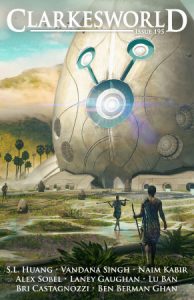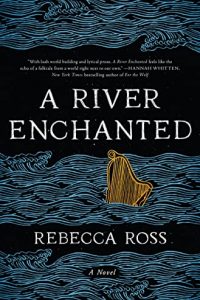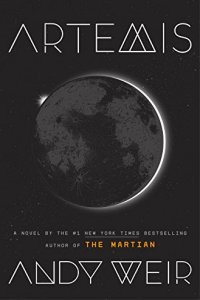Karen Burnham Reviews Short Fiction: Clarkesworld, Assemble Artifacts, and Underland Arcana
 Clarkesworld 12/22
Clarkesworld 12/22
Assemble Artifacts Summer ‘22
Underland Arcana Summer ‘22
The last Clarkesworld of the year begins with “Law of Tongue” by Naim Kabir. The narrator is managing interspecies negotiations between humans and a pod of orcas near Seattle. The grandmother orca demands help in recovering a grandchild, who has been hunting in Alaska. The whole situation puts the narrator in a bad position, and as the story unfolds, we realize just how bad it is. “Murder by Pixel: Crime and Responsibility in the Digital Darkness” by S.L. Huang is a skeleton of a story that exists to support a significant amount of real-world research into toxic online relationships and machine learning AI. The story centers on “Sylvie,” which appears to be a fairly simple AI that can nonetheless hound certain individuals (mostly cishet white businessmen) into ruining their lives and even committing suicide. But it might also be the same entity that befriends despairing women and vulnerable LGBTQ+ and shepherds them towards getting help. The narrator is a journalist who believes they’ve tracked down Sylvie’s creator, but what is the culpability here, either morally or legally? An intense and interesting look at a critical issue for today’s online culture.
Another story that puts a thriller plot onto social issues is “Upstart” by Lu Ban (translated by Blake Stone-Banks). In this future, people can get a huge payout for agreeing to artificially shorten their lives. K Li signs up at age 19 to die by age 46, but after living it up in the early days, he’s now facing ostracization and suffering the debilitating consequences of not turning himself in. Salvation seems to present itself when the daughter of one of his neighbors comes looking for him, and she might have an in at the company that administers the life-limiting treatment. Following K Li’s emotional trajectory through the story is a roller-coaster ride. Also understandably intense is “Left to Die” by Vandana Singh. Binn is injured on an alien planet, and her two co-workers/lovers leave her – she comes to suspect that they never even tried to save her. Urged on by the ghost of her mother, she is able to make some amount of contact with the sessile but apparently sentient alien “trees” that surround her. The whole experience naturally changes her life as well.
In 2021 a new venue, Assemble Artifacts, appeared which I picked up with its second issue in 2022. I noticed a theme in the stories, which spread across genres, where the main characters get truly psychologically messed up. The lead story is “The Family Proof” by Arianna Reiche. A “family” for four humanoid robots believes they have been tasked by the mysterious “Phre” to prove that they’re able to pass as human. That’s easier for some than others until the wife is forced to kill the neighbor she’s been having an affair with because he turns violent. They’re cut off from contact with Phre and have to come up with their own next steps. Then in “First Ship” by Eric Lewis, Corralyn Fan-Anders is the chief architect of the first mission to head to Promixa Centauri and she wakes up out of cold sleep knowing her place in history will go down alongside Neil Armstrong–except faster ships developed later are gaining on her ship and are likely to make it to the distant star system first. She lashes out immediately, although I could have used more character development to justify someone who had to be so professionally successful taking such a destructive turn so quickly.
My favorite story of the issue is “End of the Earth” by Brianna R. Whitrock. Nic is the level-headed one in her relationship with Matias, so she feels awful when he disappears on one of his quests after she pooh-poohs him. She goes after him and has to truly embrace the magic that he sees in the world. The story moves through Ireland, Jewish legends, the Greeks, etc. on the way to their reunion.
The other new-to-me venue that I picked up this month is Underland Arcana, edited by Mark Teppo, which I started with issue #7. The stories here do a great job of combining a slightly old-fashioned feel with modern stories and themes. “Bones Placed in Apposition” by A.P. Howell is set in the early days after the American Revolution. Featherstonehaugh visits Philosophical Hall in Philadelphia to examine a potential mastodon skull. During his examination he’s offered glasses by Hays, and those glasses give him a much richer extrapolated version of the past than he could ever have achieved on his own. But can he accept what the glasses seem to be telling him? “Familiar Well” by Eric Witchey is told in an old-timey farm dialect and features Slinky, a young girl who frequently runs away from her abusive sister and parents. Her comfort is talking to some kind of monster, named Emmet, that lives in a locked well. But when it turns out that she has access to magic and has accidentally cursed her sister, she’s going to need more direct help. It’s an oddly sweet story. Finally there is “The Ducks Opened the Hostilities” by Mattia Ravasi. Set during the pandemic lockdowns in England, the narrator is a woman who had been working from home for a long time anyway, but is now looking at shortages and delivery disruptions. Things get even worse when a flock of ducks kills her cat, and as the human vs. ducks plot evolves we get a well-done character portrait of a woman making her own way in the world alone.
Recommended Stories
“Upstart,” Lu Ban (Clarkesworld 12/22)
“The Ducks Opened the Hostilities,” Mattia Ravasi (Underland Arcana Summer ‘22)
“End of the Earth” by Brianna R. Whitrock (Assemble Artifacts Summer ‘22)
Karen Burnham is an electromagnetics engineer by way of vocation, and a book reviewer/critic by way of avocation. She has worked on NASA projects including the Dream Chaser spacecraft and currently works in the automotive industry in Michigan. She has reviewed for venues such as Locus Magazine, NYRSF, Strange Horizons, SFSignal.com, and Cascadia Subduction Zone. She has produced podcasts for Locusmag.com and SFSignal.com, especially SF Crossing the Gulf with Karen Lord. Her book on Greg Egan came out from University of Illinois Press in 2014, and she has twice been nominated in the Best Non-Fiction category of the British SF Awards.
This review and more like it in the February 2022 issue of Locus.
 While you are here, please take a moment to support Locus with a one-time or recurring donation. We rely on reader donations to keep the magazine and site going, and would like to keep the site paywall free, but WE NEED YOUR FINANCIAL SUPPORT to continue quality coverage of the science fiction and fantasy field.
While you are here, please take a moment to support Locus with a one-time or recurring donation. We rely on reader donations to keep the magazine and site going, and would like to keep the site paywall free, but WE NEED YOUR FINANCIAL SUPPORT to continue quality coverage of the science fiction and fantasy field.
©Locus Magazine. Copyrighted material may not be republished without permission of LSFF.








